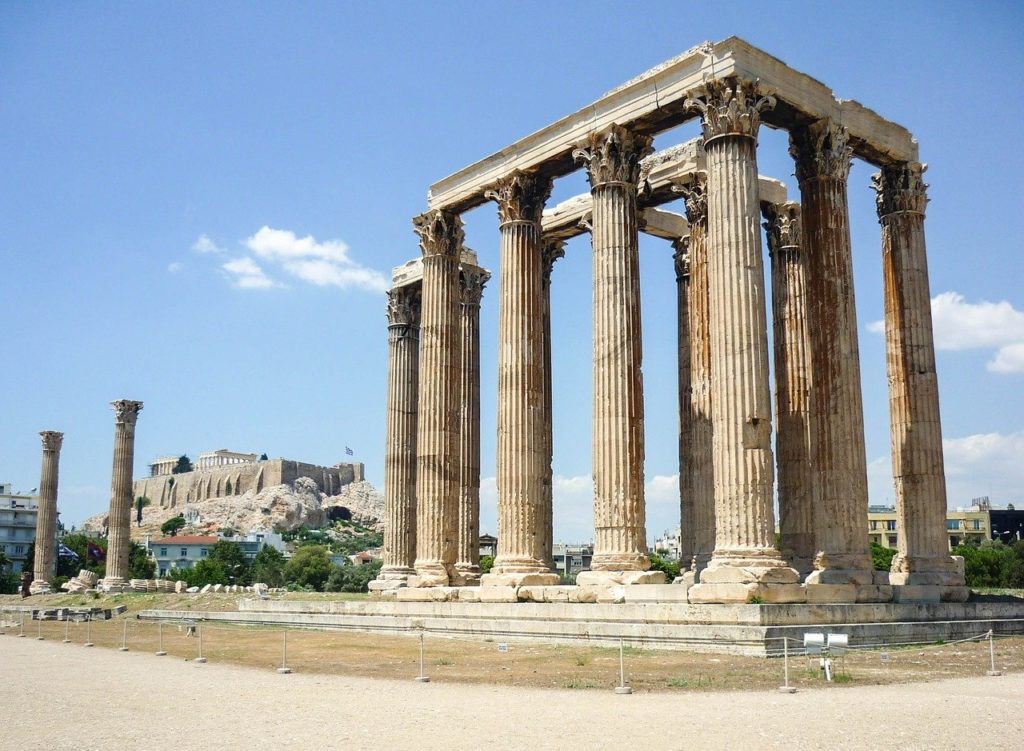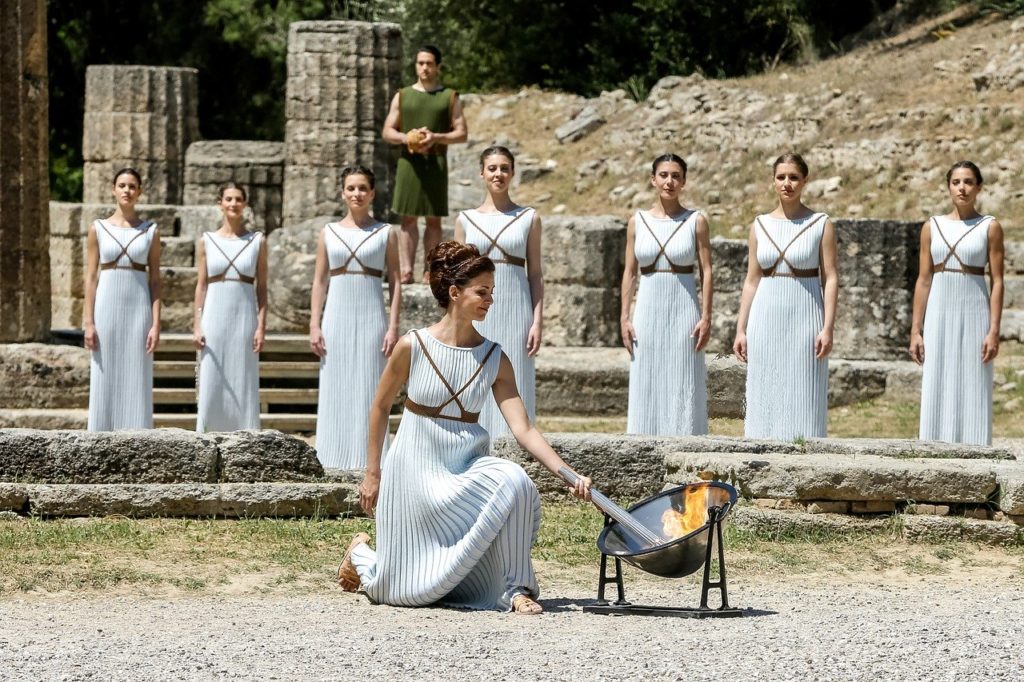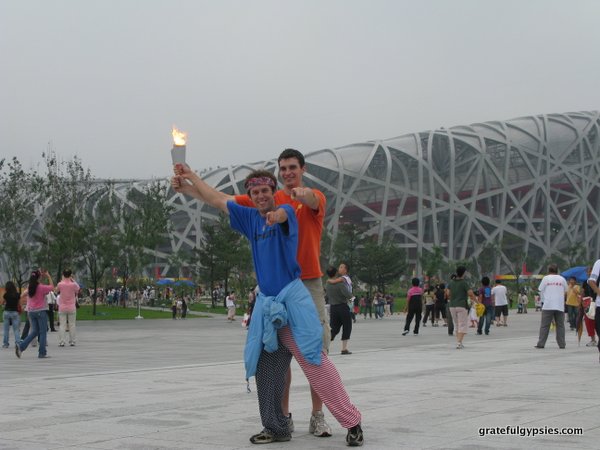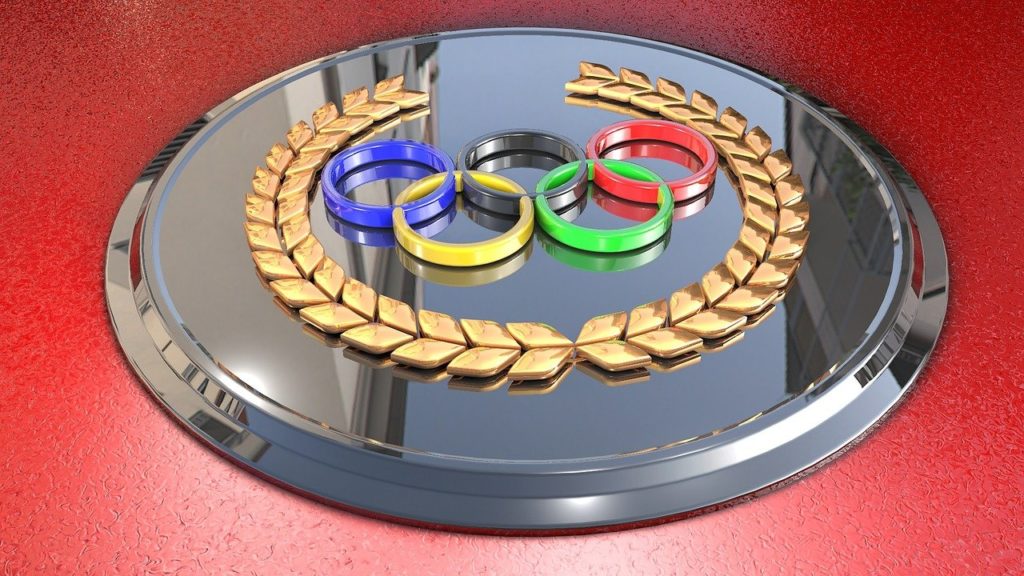Talking About the Olympics in Chinese Posted by sasha on Jun 22, 2021 in Culture, History, Sports
There’s a lot of talk right now about the Summer Olympics (夏季奥运会 xià jì ào yùn huì) at the moment. The games were postponed last year due to the pandemic and there has ben a lot of uncertainty surrounding them. We’re now just a month away and it looks like they are definitely happening in Tokyo (东京 dōng jīng). It will definitely be different this year, as spectators will only be domestic and will be limited. People all over the world will still be glued to their TV screens watching these amazing athletes perform. That’s why we’re talking about the Olympics in Chinese in today’s post.
History of the Summer Olympics
The Olympics date back to the time of ancient Greece (古希腊 gǔ xī là). Not surprisingly, the games are rooted in mythology. They held the games in honor of Zeus (宙斯 zhòu sī), king of the gods. It was just as much a religious event as an athletic one.
Olympia was the site of the games and eventually a temple was built there with a massive gold and ivory statue of Zeus. This was one of the Seven Wonders of the Ancient World (古代世界七大奇迹 gǔ dài shì jiè qī dà qí jī).
It’s unclear when exactly the first edition was held, but many historians accept the date of 776 BC. Winners of the events received wreaths or crowns made of olive leaves (橄榄叶 gǎn lǎn yè). They held the games every four years, a period of time that would be known as an Olympiad.
When the Romans gained power, the games began to decline in importance. Over the next several decades there would be different reincarnations of the games in various countries. In 1890, the IOC (International Olympic Committee) was founded with the idea to host Olympic Games every four years in different nations.
The modern day Summer Olympics first took place in 1896 in Athens (雅典 yǎ diǎn), back where it all began in Greece. Since then, the games have taken place on five continents and 19 different nations.
At the first modern games, they started to award medals to victorious competitors. It wasn’t until 1904 in St. Louis, though, that they began to award three different medals: a gold medal (金牌 jīn pái) for 1st place, silver medal (银牌 yín pái) for 2nd, and bronze medal (铜牌 tóng pái) for 3rd.
Another important tradition started in 1928 with the introduction of the Olympic torch (奥运火炬 Ào yùn huǒ jù) for the games that year in Amsterdam (阿姆斯特丹 Ā mǔ sī tè dān). The flame is ignited a few months before the games in Olympia, and the torch then begins its journey to the site of the games that year. It’s currently traveling all across Japan on its way to Tokyo next month.
Back in 1896, there were 14 nations with under 250 athletes competing. This year, it’s expected that over 11,000 athletes from 205 different nations will compete in the Summer Olympics.
The Summer Olympics Comes to China
China has hosted the Summer Olympics once. The 2008 games in Beijing had the motto of “One World, One Dream” (同一个世界 同一个梦想 tóng yī gè shì jiè tóng yī gè mèng xiǎng) and it was a huge moment for the country. It was also a pretty important moment for me, as I moved to China for the first time the day before. What an exciting time it was to arrive there!
As 8 is a lucky number in China, the games started at 8:08 PM on 8/8/08. The logo for the event was called “Dancing Beijing” (舞动的北京 wǔ dòng de běi jīng), as it really looks like the character 京 is dancing.
The five mascots for the Beijing games were known as the Fuwa (福娃 fú wá), which means “dolls of blessing.” While they were pretty cute, the names were so incredibly cheesy – Beibei, Jingjing, Huanhuan, Yingying and Nini. Put them all together and you get “北京欢迎你” (běi jīng huān yíng nǐ) or “Beijing welcomes you.”
The Opening Ceremony (开幕式 kāi mù shì) from the 2008 Olympics in Beijing was quite the spectacle that got the whole world talking. It was even featured on an episode of South Park! You can watch some highlights from what is considered by many to be the best Opening Ceremony ever here.
China’s athletes delivered some amazing performances at the 2008 Olympics, as they won an impressive 48 gold medals, 22 silver, and 30 bronze for a grand total of 100.
Chinese Vocabulary for the Summer Olympics
To really get you talking about the Olympics in Chinese, you’ll need to know the vocabulary for the different events. Here’s a chart you can copy and paste to study from with the core events of the Summer Olympics:
badminton
basketball
boxing
canoe
slalom
sprint
cycling
road
track
BMX
mountain
diving
equestrian
fencing
field hockey
golf
gymnastics
handball
judo
modern pentathlon
rowing
rugby
sailing
shooting
soccer/football
swimming
synchronized swimming
table tennis
taekwondo
tennis
triathlon
track and field
volleyball
beach volleyball
indoor volleyball
water polo
weight lifting
wrestling
羽毛球
篮球
拳击
轻艇
激流
静水
自由车
公路赛
场地赛
小轮车
山地赛
跳水
马术
击剑
曲棍球
高尔夫球
体操
手球
柔道
现代五项
划船
橄榄球
帆船
射击
足球
游泳
水上芭蕾
乒乓球
跆拳道
网球
铁人三项
田径
排球
沙滩排球
室内排球
水球
举重
角力
yǔ máo qiú
lán qiú
quán jí
qīng tǐng
jī liú
jìng shuǐ
zì yóu chē
gōng lù sài
chǎng dì sài
xiǎo lún chē
shān dì sài
tiào shuǐ
mǎ shù
jí jiàn
qū gùn qiú
gāo’ěr fū qiú
tǐ cāo
shǒu qiú
róu dào
xiàn dài wǔ xiàng
huá chuán
gǎn lǎn qiú
fān chuán
shè jí
zú qiú
yóu yǒng
shuǐ shàng bā lěi
pīng pāng qiú
tái quán dào
wǎng qiú
tiě rén sān xiàng
tián jìng
pái qiú
shā tān pái qiú
shì nèi pái qiú
shuǐ qiú
jǔ zhòng
jué lì
For the 2020 Olympics in Tokyo, there will be five new events as well. Here they are:
karate
sport climbing
surfing
skateboarding
空手道
运动攀登
冲浪
滑板运动
kōng shǒu dào
yùn dòng pān dēng
chōng làng
huá bǎn yùn dòng
Baseball isn’t exactly a “new” Olympic sport, as it was featured in the event as recently as 2008. It’s making a comeback this year, probably because it’s such a popular sport in Japan.
I’m pretty excited to watch the Olympics this year, even if the event will be much different than in years past. How about you? Leave a comment and answer these questions:
你喜欢看夏季奥运会吗? 你最喜欢哪项运动?
nǐ xǐ huān kàn xià jì ào yùn huì ma? nǐ zuì xǐ huān nǎ xiàng yùn dòng?
Do you like watching the Summer Olympics? Which sports do you like the most?

Build vocabulary, practice pronunciation, and more with Transparent Language Online. Available anytime, anywhere, on any device.








Leave a comment: